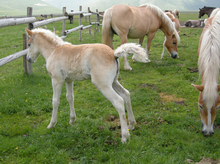A case of African horse sickness has been confirmed in Chartwell, Gauteng. Also, a suspected case in Nelspruit and currently a “suspected AHS outbreak” in the Eastern Cape – Kei Mouth and Morgan’s Bay area has been announced.

New cases of African horse sickness
Veterinarians and officials are warning that horse owners in the Eastern Cape of Africa should remain and high alert and take whatever precautions possible to reduce the bite load of midges to prevent African horse sickness.
With at least ten deaths in the Kei Mouth and Morgans Bay area of the Eastern Cape in the last 3 weeks. It has not yet been confirmed as AHS but so far the horses affected have died very quickly, most within 24 hours. Samples have been sent for testing at Equine Research Centre, with the help of Douglas Welsh from the AHS Trust. We will update here as soon as results are known which should be early next week.
Veterinarians and officials are warning that horse owners in the area should remain and high alert and take whatever precautions possible to “reduce the bite load” of midges, especially between 6pm or sunset, until sunrise.
Please Note – movement restrictions are in place for horses moving from this area into the Western Cape AHS Control Zone and compulsory quarantine is necessary before entry. Please contact the State Vet for this area to obtain further details for permission and movement permits needed.
Dr Dumu Mpofu (011) 821 7709 or you can also contact the State Vet Boland office Dr Gary Buhrmann (021) 808 5253.
African horse sickness causes and conditions
African Horse Sickness is transmitted by the blood-sucking insect Culicoides, (a small fly). Culicoides insects are abundant on all continents except Antarctica, but to date just two of the 1300+ species have proven to be competent vectors of AHS virus.
One form of AHS which affects the lungs of horses is characterized by very high fever, difficulty breathing, frothy discharge from the nose, and sudden onset of death. The mortality rate is about 90 percent.
Another form, the cardiac form is characterized by fever followed by swelling of the head and eyes, an inability to swallow, bleeding in the membranes of the mouth and eyes, and a slower onset of death occurring four to eight days after the onset of fever. The mortality rate for the cardiac form of African Horse Sickness has been estimated at around 50%.
Because of its devastating effects, AHS is on the list of economically important equine diseases worldwide and is reporting is required to local and international officials including the OIE, the animal equivalent of the World Health Organization.
Read more about African horse sickness
